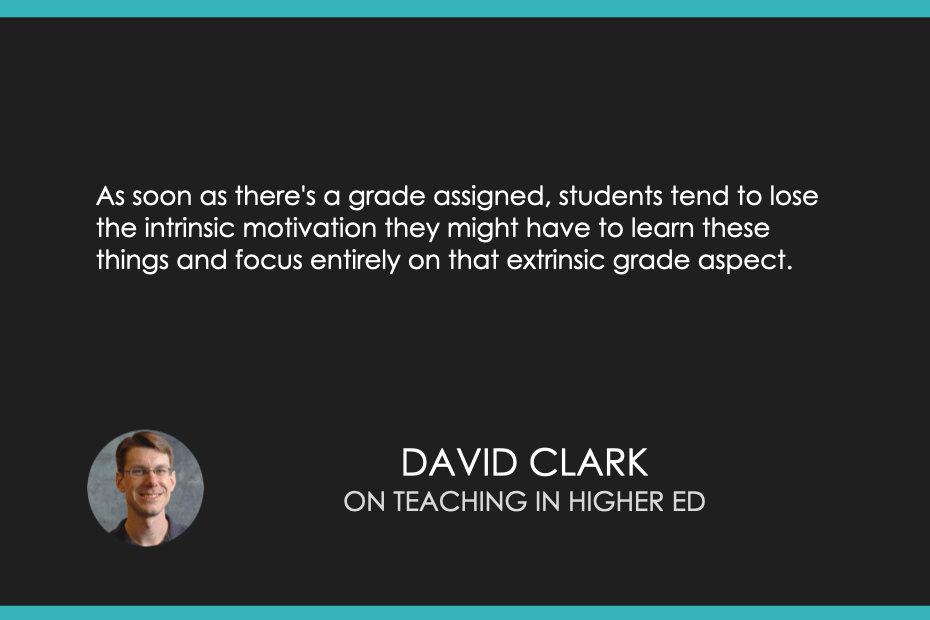Show notes
David Clark discusses using alternative grading practices to foster student learning on episode 511 of the Teaching in Higher Ed podcast.
Quotes from the episode

Does this represent what I really care about?
Most of us are used to giving feedback in some way, but making it helpful is the tough part.
A reassessment always needs some reflective parts, some metacognition, because that’s part of the feedback loop.
People aren’t going to remember everything that they’ve learned in our classes for all time.
As soon as there’s a grade assigned, students tend to lose the intrinsic motivation they might have to learn these things and focus entirely on that extrinsic grade aspect.
Resources
- Grading for Growth: A Guide to Alternative Grading Practices that Promote Authentic Learning and Student Engagement in Higher Education, by David Clark & Robert Talbert
- Episode 510: The Principles of Grading for Growth with Robert Talbert
- Four pillars described in Grading for Growth, by David Clark and Robert Talbert
- Clearly defined standards
- Helpful feedback
- Reassessment without penalty
- Marks indicate progress
- Test Yourself: Which Faces Were Made by AI
- Grading for Growth Blog

